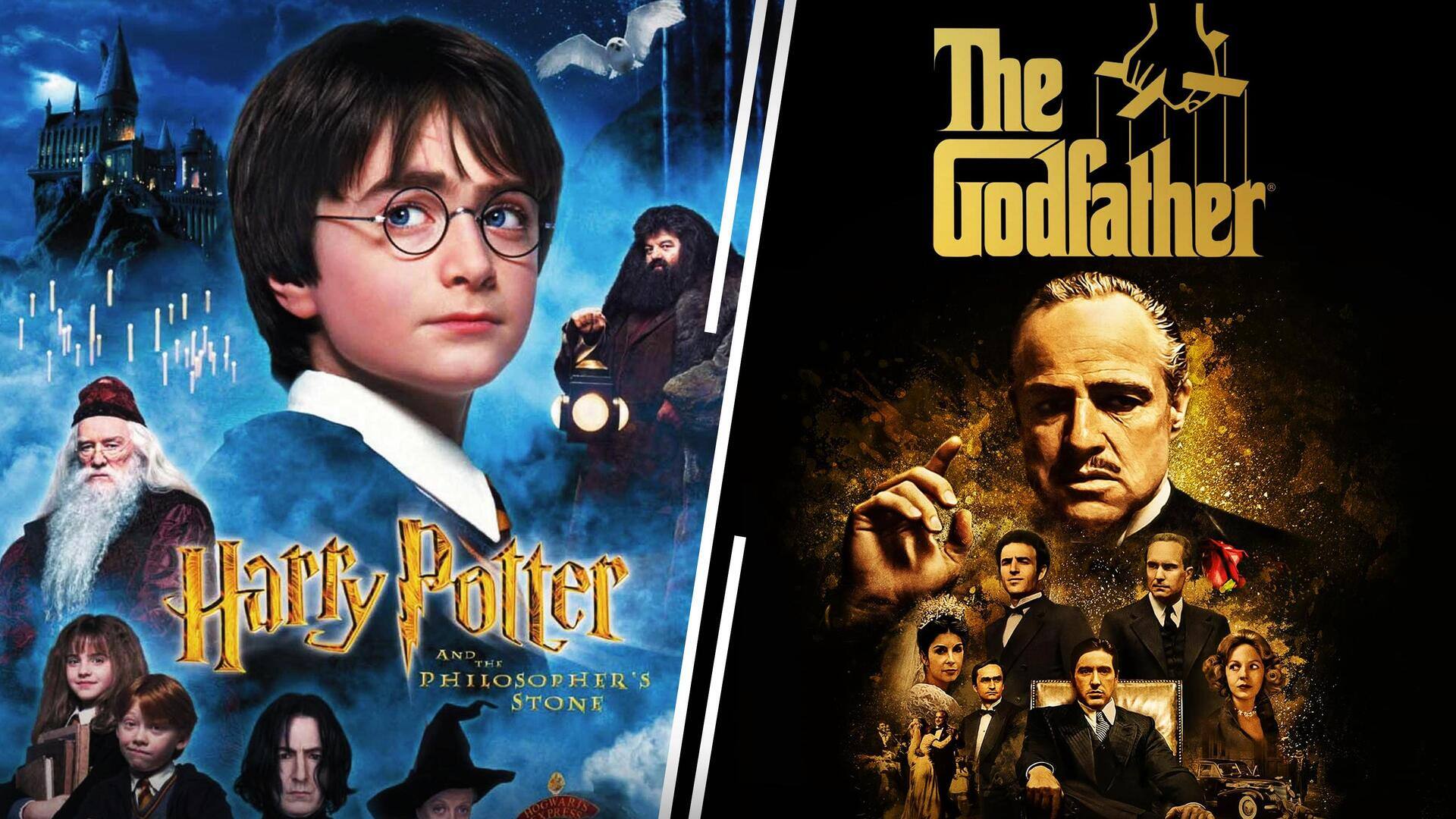
IMDb seeks votes for best book-to-screen adaptations—what's your favorite?
What's the story
It is one thing to read your favorite book cover-to-cover and completely another to see that world brought to life on 70mm in ways that surpass your expectations. Deriving stories from novels and stories has long been filmmakers' favorite task, and it isn't surprising, considering how well such films click. Recently, IMDb asked viewers to vote for their favorite book-to-screen adaptations. Take a look.
Top contenders
These films are competing in IMDb's poll
Notably, 35 highest-grossing adaptations of books are competing for the IMDb title. Some include The Hunger Games (based on the namesake book series), The Godfather (based on the eponymous book series), Gone Girl (adapted from the namesake book), Slumdog Millionaire (inspired by Q&A), Harry Potter and the Sorcerer's Stone (the first installment of the Harry Potter book series), and Shutter Island (namesake novel).
Success
Why such movies work so well
Book-to-screen adaptations are a shining jewel because they appeal to an entire generation (one that grew up reading the books). Cinematic counterparts lend new wings to the printed words, unlocking imaginative dimensions through the usage of VFX/CGI, grand set designs, period-appropriate clothing, etc. While readers often claim that books always remain superior, such films can also prompt non-readers to pick up a paperback!
Changes
Do films always remain 100% loyal to source material?
Due to the limited time frame that filmmakers work with, it is extremely common for them to diverge from the source material in the sense that they remove some parts, alter some storylines, and make other changes as necessary. Take, for instance, Harry Potter and the Deathly Hallows, which was split into two films to cover the mammoth story that spread over 600 pages.
Indian examples
Closer home, these projects fulfill criteria
While the aforementioned list is restricted to Hollywood films, India, too, has several movies that derive their central plot from books. Some prominent examples are Omkara (based on Othello), Haider (based on Hamlet), Maqbool (inspired by Macbeth), 3 Idiots (derived from Five Point Someone), Hello (adapted from One Night at the Call Center), and 2 States (adapted from the namesake novel).